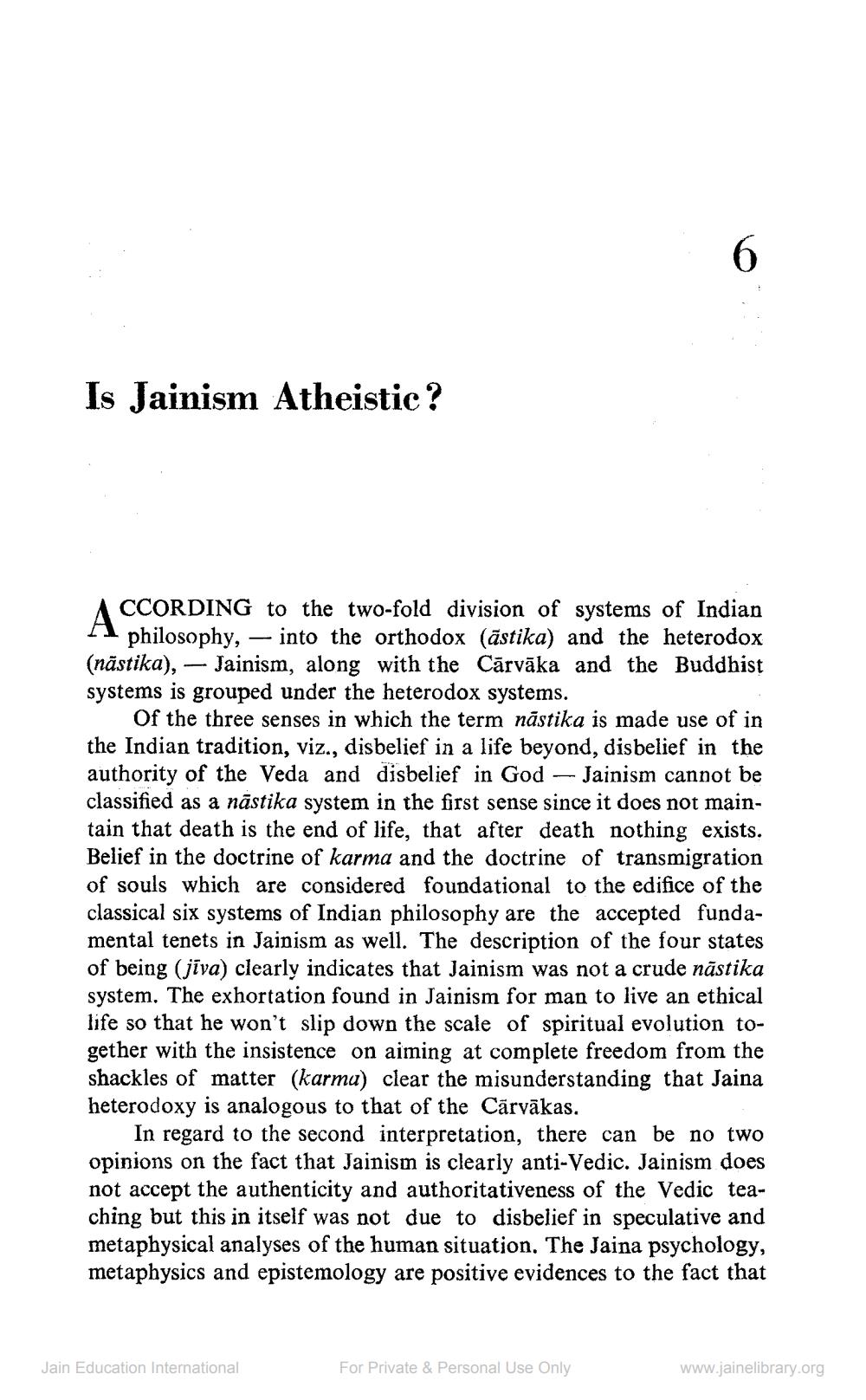________________
Is Jainism Atheistic?
ACCORDING to the two-fold division of systems of Indian
philosophy, into the orthodox (āstika) and the heterodox (nāstika), — Jainism, along with the Cārvāka and the Buddhist systems is grouped under the heterodox systems.
Of the three senses in which the term nästika is made use of in the Indian tradition, viz., disbelief in a life beyond, disbelief in the authority of the Veda and disbelief in God Jainism cannot be classified as a nāstika system in the first sense since it does not maintain that death is the end of life, that after death nothing exists. Belief in the doctrine of karma and the doctrine of transmigration of souls which are considered foundational to the edifice of the classical six systems of Indian philosophy are the accepted fundamental tenets in Jainism as well. The description of the four states of being (jiva) clearly indicates that Jainism was not a crude nästika system. The exhortation found in Jainism for man to live an ethical life so that he won't slip down the scale of spiritual evolution together with the insistence on aiming at complete freedom from the shackles of matter (karma) clear the misunderstanding that Jaina heterodoxy is analogous to that of the Carvākas.
In regard to the second interpretation, there can be no two opinions on the fact that Jainism is clearly anti-Vedic. Jainism does not accept the authenticity and authoritativeness of the Vedic teaching but this in itself was not due to disbelief in speculative and metaphysical analyses of the human situation. The Jaina psychology, metaphysics and epistemology are positive evidences to the fact that
Jain Education International
-
6
For Private & Personal Use Only
www.jainelibrary.org




